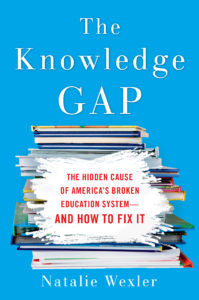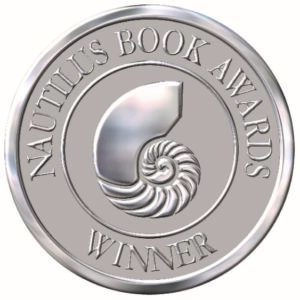 Winner of a silver medal from the Nautilus Book Awards in the category of Social Sciences and Education
Winner of a silver medal from the Nautilus Book Awards in the category of Social Sciences and Education

The Knowledge Gap was selected for promotion by BookBub through its newsletter, eBookDaily.
“Is it possible to create a more inclusive and fairer education system? The Knowledge Gap shows the way.” Daisy Christodoulou, tes.
“The Knowledge Gap is not just a scholarly work. It pulsates with vivid detail as it winds its way through the strange terrain of the Educational Upside Down. Anyone who seeks to understand the quixotic state of educational ideas in American schools and beyond should place it on the top of their summer reading list.” Greg Ashman, Quillette
“The best book I have seen on improving elementary schools.” Jay Mathews, Washington Post
“The Knowledge Gap makes a persuasive case for attending to the importance of rich content and high-quality curricula in elementary classrooms.” Carnegie Corporation of New York
“This book serves as a reminder of our own potential knowledge gap and provides an opportunity for educators to be wiser consumers of information with the ability to ‘distinguish between approaches that are likely to produce the outcomes we want and those that will only lead to a heartbreaking waste of precious time.'” Sheryl Ferlito, Perspectives on Language and Literacy
“Wexler … has made a first-rate case for content. … If you are among the uninitiated on the value of content knowledge for kids, buy a copy. If you’re already among the true believers, buy two copies and put them in the hands of persuadable educators.” Robert Pondiscio, Education Next
“In this compelling work, journalist Wexler pinpoints the underlying issues that plague the American public education system, provides context to recent educational reforms, and offers possible solutions.” Library Journal (starred review)
“A compelling critique of American elementary schools” that “highlights pervasive problems.” Kirkus Reviews
“Illuminating and thought-provoking.” Publishers Weekly
THE KNOWLEDGE GAP focuses on a long-overlooked issue lying at the heart of what is known as the achievement gap: the failure of most elementary schools, and especially those serving low-income children, to systematically build knowledge of the world.
Every school day, elementary teachers spend hours drilling students on comprehension skills and strategies like “finding the main idea” or “making inferences,” in an effort to boost their reading ability–and their scores on standardized reading tests. Subjects like history, science, and art have virtually disappeared from the curriculum in many schools.
In fact, these schools are doing the exact opposite of what can actually turn students into good readers. Comprehension strategies can be useful–when delivered in limited doses and connected to specific content. But cognitive science has shown that the primary factor in whether you’re able to understand what you read is whether you possess relevant background knowledge and vocabulary.
The prevailing narrow, skills-focused approach to literacy instruction can hold any child back, but its effects fall hardest on those at the bottom of the socioeconomic spectrum. Children from more educated families often absorb knowledge about the world at home. But those from less educated families have to rely on schools for the kind of knowledge that will equip them to do well on tests—not to mention in high school, college, and life. Every year they spend in school without getting that knowledge puts them farther behind their more affluent peers. By the time they get to middle or high school, it’s often too late for them to catch up.
Through the stories of educators, students, and parents, The Knowledge Gap examines what elementary literacy instruction currently looks like, how it evolved to this point — and how it can be changed so that all students receive a meaningful, rigorous education.
Excerpts from the book have appeared in The Atlantic, Chalkbeat, MindShift, American Educator, and the blog of the Albert Shanker Institute.
Read or listen to interviews with Natalie and presentations about The Knowledge Gap:
TV:
Morning Joe, MSNBC
After Words With Natalie Wexler, C-SPAN
Good Morning Washington, WJLA
VIDEO:
Why Prior Knowledge Wins the Game (two-minute video from Edutopia)
Western NY Science of Reading Conference, November 2022
Iniciativa Educacao, Lisbon (in English)
Why Teaching Social Studies Is Teaching Reading, The OC for Social Studies Conference
RADIO:
South Dakota Public Broadcasting
The Pulse (WHYY/NPR) (episode on comprehension)
1A (WAMU/NPR)
On Point (WBUR/NPR)
Leonard Lopate at Large, WBAI
Forum, KQED
All of It, WNYC
The Record, KUOW
St. Louis in Tune, KWRH
PODCASTS:
Bedrock Talks with Andy Sammons
Principal Center Radio with Justin Baeder (second appearance)
The Dyslexia Duo with Aimee Rodenroth and Melissa Dean (Part 1)
Science of Reading Leadership with Dr. Christy Lamb and Terri K. Hunt
All for Literacy with Dr. Liz Brooke
Through the Educational Looking Glass with Don Sturm and Courtney Eddleson
Lars og pal with Lars Sandaker
Education Uncharted with Amanda Bratten (Propello)
Raising Healthy Kid Brains podcast with Amy Nielson
TeachThought Podcast panel discussion with Emily Hanford and others
The Literacy View with Faith Borkowsky, Judy Boksner, and Mary McCool Berry
Building Knowledge with Kristen Rodriguez
Mr. Nico Summer Schoolin’ with Nico Eaglin
Melissa and Lori Love Literacy (with Judith Hochman)
On the Scene with SST 13 with Mary Williams
The Inquiring Mind with Stanley Goldberg
After the Bell with Cassie Tabrizi
Alabama Literacy Network’s Podcast with Shelley Vail-Smith
The Charles Love Show (second hour)
Catalysts for Change with Jill Shah
Rethinking Intervention with Emily Freitag
Tests and the Rest with Mike Bergin and Amy Seeley
Filling the Pail with Greg Ashman
Rethinking Intervention with Emily Freitag and Christina Gonzales
PodcastED with Doug Tuthill
EDVIEW 360 Podcast, Voyager Sopris: Righting the Wrongs of the Elementary Education System
EWA Radio: Can Schools Close “The Knowledge Gap”?
Just a Few Questions with Marc Sims
Education is Power with Chris Stewart (Facebook Live)
Melissa and Lori Love Literacy (second appearance)
More Teacher Talk: Transforming Teaching and Learning for Disadvantaged Pupils
Full Prefrontal: A Podcast About Exposing the Mysteries of Executive Function
Ed’s Not Dead: A podcast covering today’s hottest education issues
Off the Assembly Line: A Podcast with Rebecca Reed
ExtraOrdinary Districts: Ordinary school districts that get extraordinary results
Vrain Waves: Teaching Conversations with Minds Shaping Education
Science of Reading: The Podcast
The Learning Curve with Bob Bowdon and Cara Candel
The Report Card with Nat Malkus
Education Research Reading Room with Ollie Lovell
Principal Center Radio with Justin Baeder
Melissa and Lori Love Literacy
PRINT INTERVIEWS AND ARTICLES:
Racket News, Substack Q&A: Natalie Wexler of Minding the Gap, May 13, 2024
Edutopia, “Why Our Youngest Readers Need ‘Knowledge,’ Not ‘Skills,’ July 28, 2022
Edutopia, “Is It Time to Drop ‘Finding the Main Idea’ and Teach Reading in a New Way?, July 28, 2020
American Educator, “Building Knowledge: What an Elementary Curriculum Should Do”, Summer 2020
EdNC, “Reading instruction needs to improve. Who will lead the charge, and how?”, February 17, 2020
Click HERE to order The Knowledge Gap through the publisher’s website or HERE to order from Amazon.
Listen to an excerpt from the audio version, read by the author, below. To order the audio book, click HERE.

